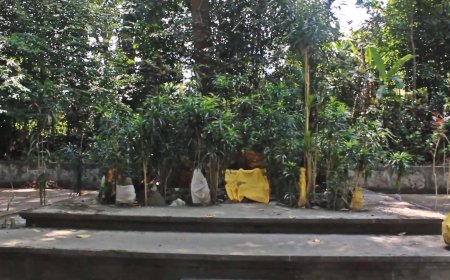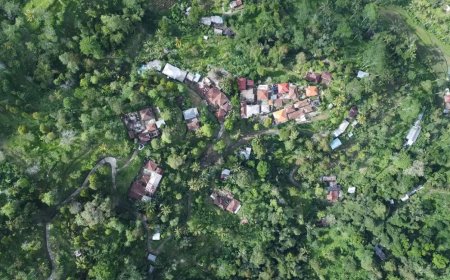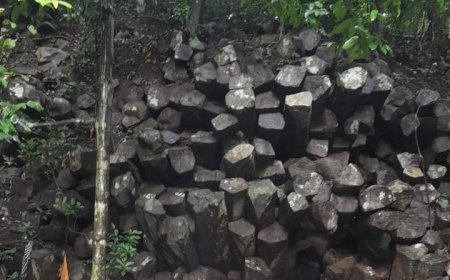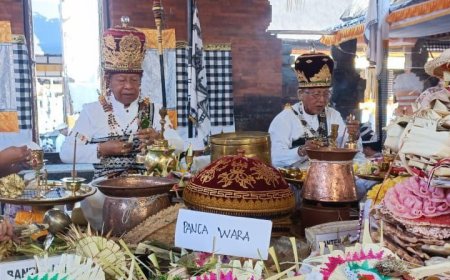Nunas Tirta Pemuket: Purifying Ritual Elements with Sacred Water for the Sanctity of the Ceremony
Pemuket signifies the process of cleansing or neutralizing intended to purify ceremonial items and ritual elements before they are used in sacred ceremonies.
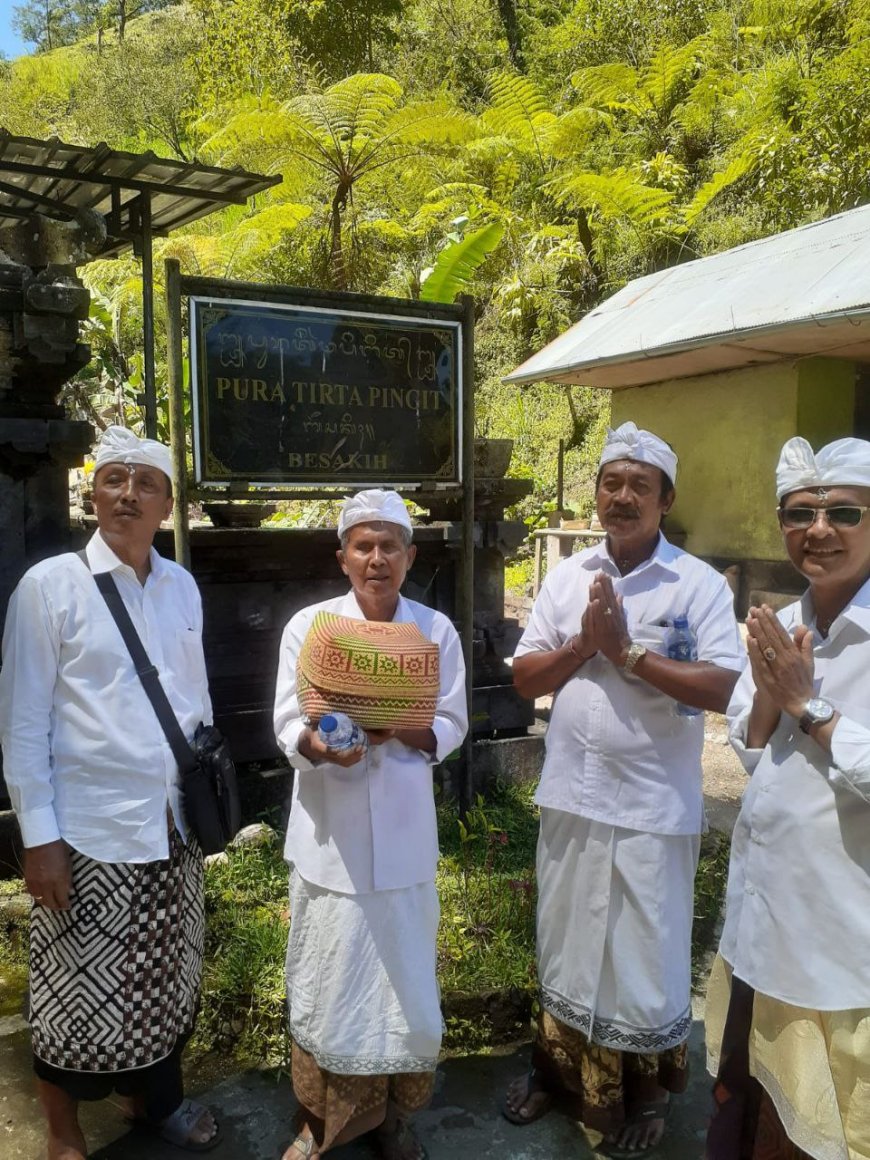
Nunas Tirta Pemuket can be translated as a request for holy water, known as tirta, used in the pemuket process—meaning purification or cleansing. In the context of Balinese rituals, tirta refers to water believed to possess deep spiritual power, often obtained from sacred sources such as temples or places considered to have divine energy. This water is believed to cleanse and remove negative energies, bringing blessings and peace.
Meanwhile, pemuket signifies the process of cleansing or neutralizing intended to purify ceremonial items and ritual elements before they are used in sacred ceremonies. This process involves not only physical cleaning but also spiritual purification, ensuring that every element involved in the ceremony is free from any impurities that could diminish its sanctity.
By performing nunas tirta pemuket, Balinese Hindus connect with spiritual forces through the request for holy water, which is used to purify all aspects of the ceremony. This ritual symbolizes the effort to ensure that every element used in the ceremony is in its purest state and ready to receive and disseminate positive energy. It is not just the initial step in ritual preparation but also reflects a commitment to purity and harmony, which are central to every sacred ceremony. Thus, nunas tirta pemuket serves as an essential bridge between the physical and spiritual realms, preparing the ritual environment to radiate meaningful blessings and sanctity.
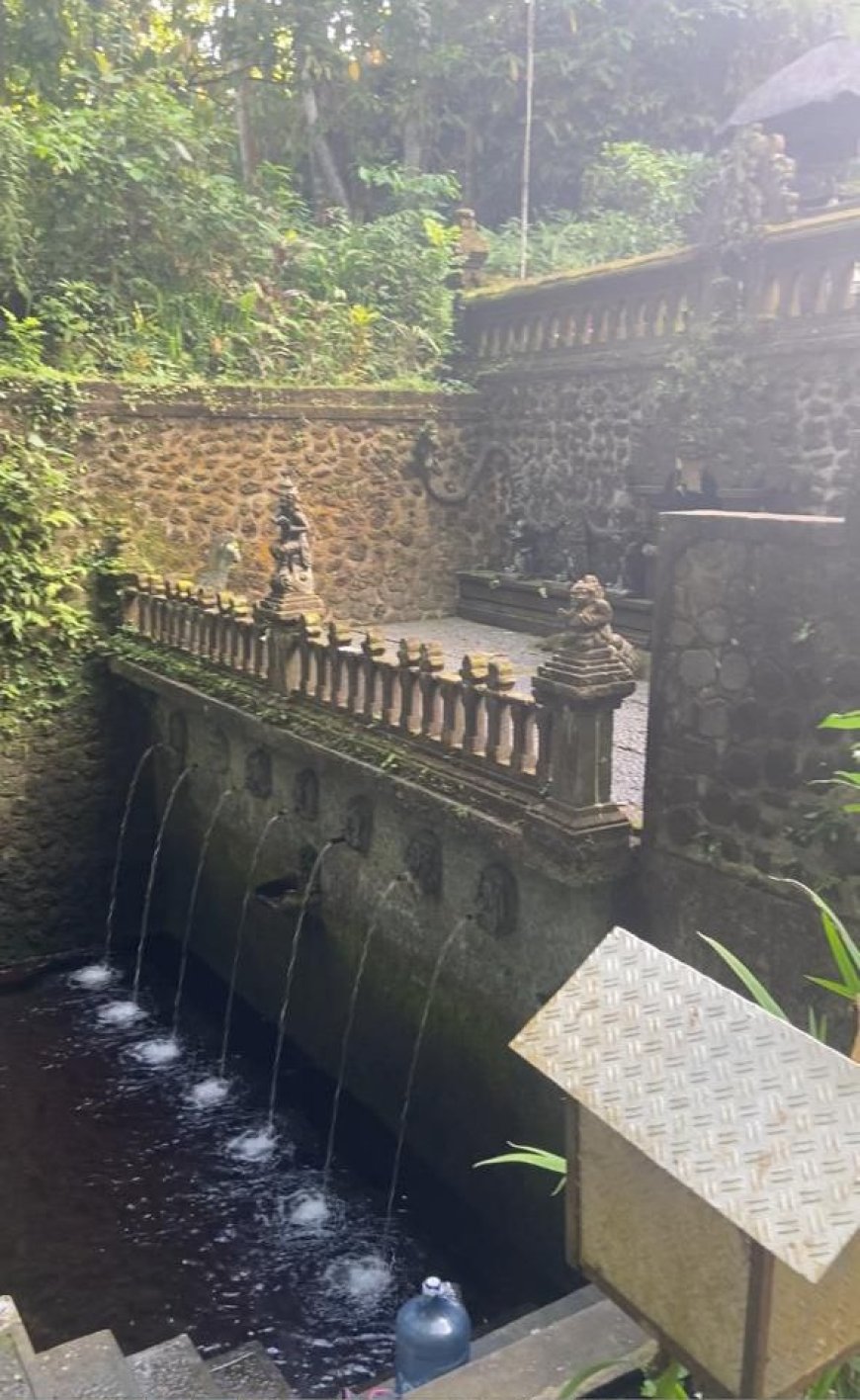
Pancoran Waringin Sungsang (Pancoran 7 Kapal)
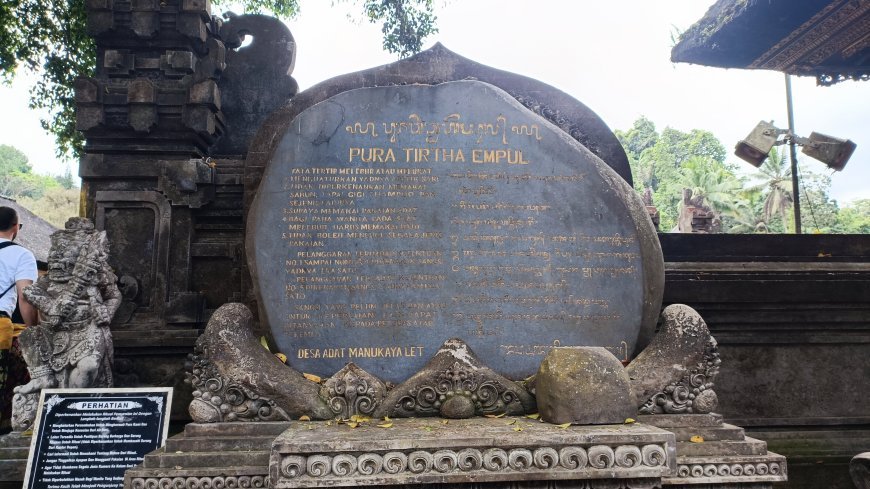
Tirta Empul Temple
In the context of the Karya Agung Ngenteg Linggih, Ngusabha Desa, and Mapahayu Nini held at Pura Desa and Puseh Mengwitani, the Nunas Tirta Pemuket ceremony plays a very important role. The ritual, conducted on August 26, 2024, involves requesting holy water from various temples and sacred places, including several locations deemed to have profound spiritual power. Among the chosen places for nunas tirta pemuket are Toya Pengubengan at Pura Tirta Pingit Besakih and Toya Telaga Waja at Teg Sad Besakih. The Banjar responsible for nunas tirta at these sacred places is Banjar Loda Pura. Next is Segara Batu Ngaus in Cemagi, which is visited by Banjar Gunung Sari. Following that are Toya Tirta Empul in Tampak Siring and Pancoran Waringin Sungsang (Pancoran 7 Kapal), with Banjar Sila Dharma handling these sites. Finally, Toya Danau Batur in Kintamani is visited by Banjar Jumpayah. Not only is holy water requested from temples or sacred places outside the village, but it is also sought from Pura Desa and Puseh Mengwitani, where the ceremony takes place. The holy water obtained from these locations will be used to purify and sanctify various ceremonial materials, ensuring that every element of the ritual is in its purest condition and ready to receive spiritual blessings. By involving different sources of holy water, the ceremony combines the power and energy from these sacred places, creating a ritual environment full of sanctity and harmony.
With the completion of the Nunas Tirta Pemuket process for the Karya Agung Ngenteg Linggih at Desa Adat Mengwitani, all the holy water requested from various temples and sacred sites is now ready for use. Although the tirta has not yet been applied directly, the holy water obtained from locations such as Pura Tirta Pingit Besakih, Teg Sad Besakih, Cemagi, Tampak Siring, Kintamani, and Pura Desa and Puseh Mengwitani will become an integral part of each stage of the ceremony. This purification process prepares the holy water for use in subsequent ritual steps, ensuring that all elements of the ceremony are treated with a high level of sanctity and harmony. Thus, Nunas Tirta Pemuket becomes a vital foundation supporting the sacredness and blessings of each stage of the ceremony, preparing an optimal spiritual environment for the sacred rituals to follow.
